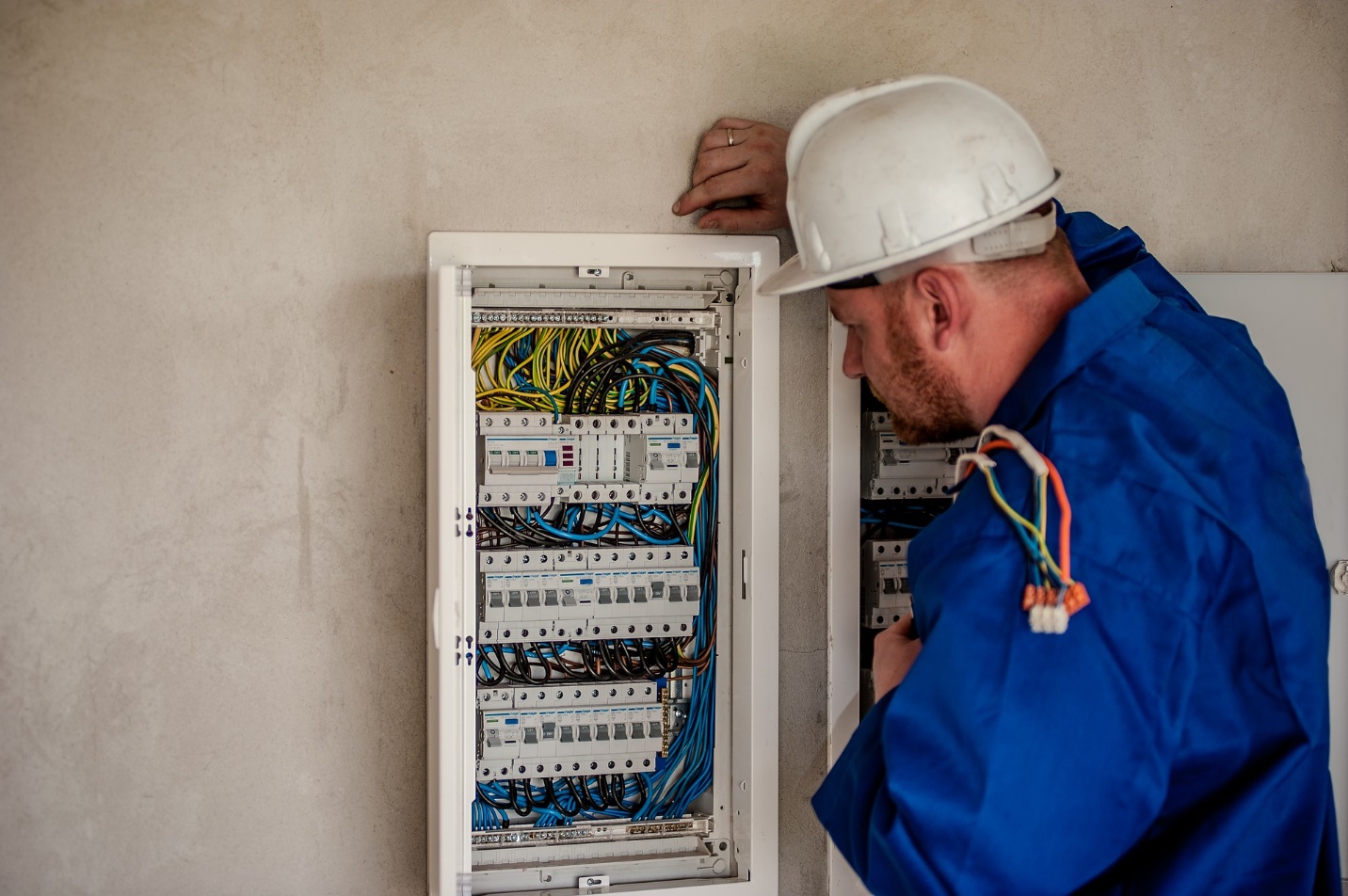It is easy to mistake these two professionals and many times, the terms are used interchangeably. However, there are slight differences between the two that you will get to discover in this article. Both professionals are associated with electricity and electrical works, so, it is no surprise they are mistaken for one another. In the case of an emergency, it is important to know which one of these two professionals to call.
Who is an Electrician?
An electrician, as the name implies, is a tradesman who is trained and licensed to carry out electrical works. They specialize in wiring of stationary machines, buildings, transmission lines, and other related work. Electricians may choose to be self-employed or work for an electrical contractor. Click here to learn more about an electrician’s area of specialization.
There are three levels to which an electrician can be trained. They are:
- Apprentice: Apprentices are people who have just begun to learn the trade. They usually work and learn on the job and receive stipends as they learn the trade. The duration of their training ranges from three to six years.
- Journeyman: A journeyman is an electrician that has completed his apprenticeship and has been confirmed and licensed by local, State, and National bodies to practice the profession.
- Master Electrician: These are electricians that have practiced the profession for over ten years and have demonstrated superior knowledge of the trade. To become a master electrician, one must sit for and pass certain examinations to demonstrate an understanding of the National Electrical Code (NEC)
Once an electrician has received any of the above levels of training, they can choose to specialize as linemen or wiremen. Linemen typically work on electric distribution systems at higher voltages while wiremen work with lower voltages used in buildings. Wiremen can further be grouped into:
- Residential
- Commercial
- Industrial
- Low voltage electricians.
In 2019, electricians earned an average annual income of $56,180, with the highest-paid 25 percent earning around $73,900 and the lowest 25 percent earning approximately $42, 100.

Who is an Electrical Contractor?
An electrical contractor most often refers to a business or a firm that specializes in designing, installing, and maintaining electric systems. The major difference between these two is that one is regarded as more professional than the other, in the sense that a contractor is a businessman while an electrician is a tradesman. The latter is usually hired by the former for projects they are paid to carry out.
You can check out Answer Power Services to learn how to find electrical contractors that can handle a wide variety of electrical works. Such companies will usually have highly trained electricians who have years of experience in specific areas of work related to electricity.
When a contractor is hired for a project, they provide their professional input into the design of the project. In addition, they also come up with a plan that will guide how they will operate throughout the duration of the project.
Upon approval of the plan which comprises of the budget, necessary permits, design, and insurance, the contractor begins construction. They usually employ the use of software designed especially for use by contractors for project management.
A level of sophistication is not found among electricians. Whenever there is an electrical emergency, a contractor is better suited to handle it.
For an electrician to become a contractor, he must have demonstrated expert knowledge and understanding of the field. He must also have worked in the field for a minimum of ten years before moving to acquire all necessary documents and licenses. Visit https://www.harborcompliance.com/information/electrical-contractor-license to learn more about licensing for contractors.
How do I know Which one of the two to hire?
Deciding which one of the two to hire for an electrical job you have is easy. Contractors usually take on bigger projects that cost hundreds and sometimes millions of dollars to carry out.
Electricians on the other hand are comfortable handling relatively minor electrical problems in buildings and charge an average rate of $27 an hour. To clarify, do not call a contractor if you need to fix a faulty wiring in your house. Click here to learn more about electrician rates and prices.
Conclusion
The ultimate goal of every electrical apprentice is to master the trade and gather enough experience to someday become a contractor. Although contractors earn a lot more than solo electricians, an electrician can still make a decent living being self-employed and working minor contract jobs.














